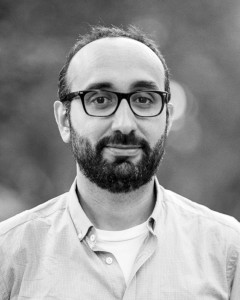Populist forces are not foolish – they are posing legitimate questions about the state of democracy
What response should we have to the new populist movements taking root in different corners of Europe? Cristóbal Rovira Kaltwasser argues that though they may at time cause eyebrows to be raised, populists around the world are posing legitimate questions about the current state of democracy.

Credit: Thierry Ehrmann, CC BY 2.0
That populism is a pathology that increasingly is affecting democratic governments around the world is an argument that has been advanced by a growing number of both pundits and academics. This claim is usually accompanied by a warning about the emergence of populist forces, which allegedly seek to dismantle the so-called checks and balances that are inherent to the liberal democratic regime. Although this is a valid concern, we should be very careful when making judgments about the relationship between populism and democracy. As I have argued elsewhere, populist forces are not pathological per se. On the contrary, the very rise of populism is related to its capacity to offer simple answers to two democratic dilemmas that do not have a clear democratic solution: the boundary problem (how to define the people?) and the limits of self-government (how to control the controllers?).
The boundary problem alludes to the impossibility of defining who ‘we, the people’ are in a democratic way. History tells us that ‘the people’ is always born out of a combination of coercion and persuasive storytelling, rather than of a rational discourse leading to the formation of a voluntary association. In fact, most democracies of the world have endorsed a narrow concept of ‘the people’, excluding many times several groups in their state territories (e.g. blacks, immigrants, women, etc.). Consequently, many democratic thinkers argue that ‘the people’ should be thought of as a constantly evolving entity, which is shaped by both immigration and the changing preferences of the electorate. Furthermore, the decisions that ‘we, the people’ take today have an impact on future generations – just think about public debt.
Democracies are also confronted with the question of how to control the controllers. Contemporary democratic regimes are characterised by the existence of autonomous institutions, which are not (directly) elected by ‘the people’ and yet have an extraordinary amount of power. Constitutional courts, international organisations such as the European Union and central banks are paradigmatic examples of this type of institutions, which in theory seek the common good. However, citizens have almost no capacity to monitor their functioning and oppose them. Although these institutions certainly can help to resolve conflicts of interests and allocate resources, to some extent they represent a problem for democracy. After all, democracies are based on the idea that the ultimate political authority is vested in the people and not in divine powers or (unelected) bodies composed of experts and technocrats.
The questions of how to define the people and how to control the controllers have been gaining momentum in the last few years. Growing concern about immigration and rising inequality show that it is not easy to decide who is entitled to participate in the collective decision-making process. Moreover, the increasing power of autonomous institutions puts democracy under stress, since it is not always clear if these institutions ultimately contribute towards a common good. Interestingly, populism offers a simple answer to each of these questions. What is more, the electoral appeal of populist leaders is to a great extent related to their capacity to advance straightforward solutions to these two democratic dilemmas.
In advancing these solutions, the very essence of the concept of populism crystallises. In recent years, there has been growing academic consensus on a definition of populism as an ideology or discourse, which not only contends that politics is about enacting the popular will, but also portrays society as divided between ‘the pure people’ and ‘the corrupt elite’. Otherwise stated, populism should be understood as a moral and Manichean language, whereby the establishment is seen as a dishonest and the people is depicted as a virtuous community that should stand up and regain their rightful sovereignty.
Following this understanding of populism, we can better grasp its responses to the two democratic dilemmas sketched above. How does populism resolve the boundary problem? To answer this question, populist forces are prone to advance two kinds of responses: ethnos and plebs. On the one hand, exclusionary populism relies on an organic conception of ‘the pure people’ (ethnos), according to which individuals sharing racial and cultural attributes compose the national community. On the other hand, inclusionary populism maintains that ‘the pure people’ is composed of the socioeconomic underdogs (plebs), who are discriminated against by a fraudulent establishment. At a first glance, it might seem that exclusionary populism (e.g. UKIP in the UK or the National Front in France) represents a democratic threat, while inclusionary populism should be seen as a democratic corrective (e.g. Podemos in Spain or SYRIZA in Greece). Nevertheless, it is important to underline that all kinds of populist forces are problematic for democracy since they employ a moral discourse whereby the possibility of reaching agreements is almost impossible – remember that populism is a moral language that assumes that politics is about enacting the (allegedly self-evident) will of the people.
And how does populism resolve the limits of self-government? In general terms, it is possible to identify two different solutions. On the one hand, there are populist forces that claim that the underlying constitutional order is legitimate. Hence, the silent majority and not corrupt actors should be in charge of the autonomous institutions that are inherent to the liberal democratic regime. On the other hand, some populist forces assert that the existing constitutional order has been made to protect the interests of the establishment. They therefore contend that the time has come to undertake constitutional reforms or establish a constituent assembly to build a new legal framework, which is in tune with the ideas and interests of ‘the pure people’.
Of course, pundits and academics alike might not be in favour of the solutions advanced by populist forces to the two democratic dilemmas discussed here. This does not mean, however, that populism is pathological. Whether one likes it or not, populists around the world are posing legitimate questions about the current state of democracy, particularly when austerity measures are being imposed by (autonomous) international organisations and politicians opt to declare that ‘multiculturalism has failed’ rather than to elaborate a sensible approach on immigration.
Instead of portraying populists as foolish actors or constituencies, scholars and policymakers should reflect on the way in which populism helps to give voice to groups who do not feel represented by the establishment. In addition, those who are worried about the rise of populism should evaluate whether they have plausible and well-thought answers when it comes to dealing with the boundary problem and the limits of self-government. The way ahead, then, does not lie in demonising populist forces. Quite the contrary: we have to start paying much more attention to the legitimate questions that are being raised by populist actors.
—
Note: this post represents the views of the author and not those of Democratic Audit UK, or the LSE. Please read our comments policy before posting.
—
 Cristóbal Rovira Kaltwasser is an Associate Professor of Political Science at Diego Portales University in Santiago de Chile.
Cristóbal Rovira Kaltwasser is an Associate Professor of Political Science at Diego Portales University in Santiago de Chile.





 Democratic Audit's core funding is provided by the Joseph Rowntree Charitable Trust. Additional funding is provided by the London School of Economics.
Democratic Audit's core funding is provided by the Joseph Rowntree Charitable Trust. Additional funding is provided by the London School of Economics.
[…] been hijacked by a self-serving and unrepresentative political establishment merits discussion. As Cristóbal Rovira-Kaltwasser recently argued, we should not demonise populist forces. They raise legitimate questions about the […]
[…] been hijacked by a self-serving and unrepresentative political establishment merits discussion. As Cristóbal Rovira-Kaltwasser recently argued, we should not demonise populist forces. They raise legitimate questions about the […]
TIP! If you read one piece on #populism let it be this one by my friend and co-author Cristobal Rovitra Kaltwasser! https://t.co/d013Dig27K
Kaltwasser: Populist forces are not foolish – they are posing legitimate questions about the state of democracy https://t.co/epzlbQpdsP
Great piece by coauthor/friend CKR: “Populists aren’t foolish but pose legitimate questions about state of democracy” https://t.co/d013Dig27K
Populist forces are not foolish – they are posing legitimate questions about the state of dem… https://t.co/8yuShg3ikm https://t.co/nukmRNVtSB
Populist forces are not foolish – they are posing legitimate questions about the state of democracy https://t.co/jDBaZGkbQp
Interesting article about #populism: “populists pose legitimate questions about the current state of democracy”. https://t.co/1exkHPBnXx
Populist forces are not foolish – they are posing legitimate questions about the state of democracy https://t.co/AmLZtEiIO0